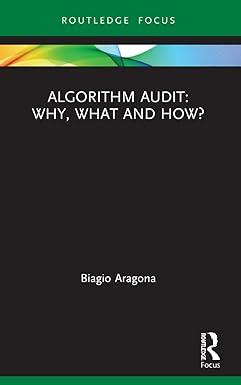Question
Should IRS agents be allowed to identify audit subjects by reading the society page of the newspaper, looking for indicators of wealth? What if the
Should IRS agents be allowed to identify audit subjects by reading the society page of the newspaper, looking for indicators of wealth? What if the agency subscribes to Facebook and seeks comments from its friends as to income windfalls and stock market dealings? In the past, some state and local taxing agencies have used social networking sites for audit selection purposes. State and local revenue agents have used the sites to find selfemployed individuals who advertise their business and report about upcoming income-producing events. The sites also have been used to determine whether a taxpayer who has requested an extension of time to pay a delinquent tax actually is strapped for cash. Some state tax officials claim that looking for a taxpayers self-declarations on a website is a much more efficient way to find income understatements than searching through most other sources of nonstatistical data. Should taxing agencies be using Google, Facebook, and other public-domain online sources of taxpayer information to help find non-filers and identify tax returns for audit?
Refer to the Ethics & Equity information reflected above. Prepare a discussion board post commenting on the current self-assessment system and any additional enforcement procedures. Your discussion will include references to outside information as necessary.
Step by Step Solution
There are 3 Steps involved in it
Step: 1

Get Instant Access to Expert-Tailored Solutions
See step-by-step solutions with expert insights and AI powered tools for academic success
Step: 2

Step: 3

Ace Your Homework with AI
Get the answers you need in no time with our AI-driven, step-by-step assistance
Get Started


